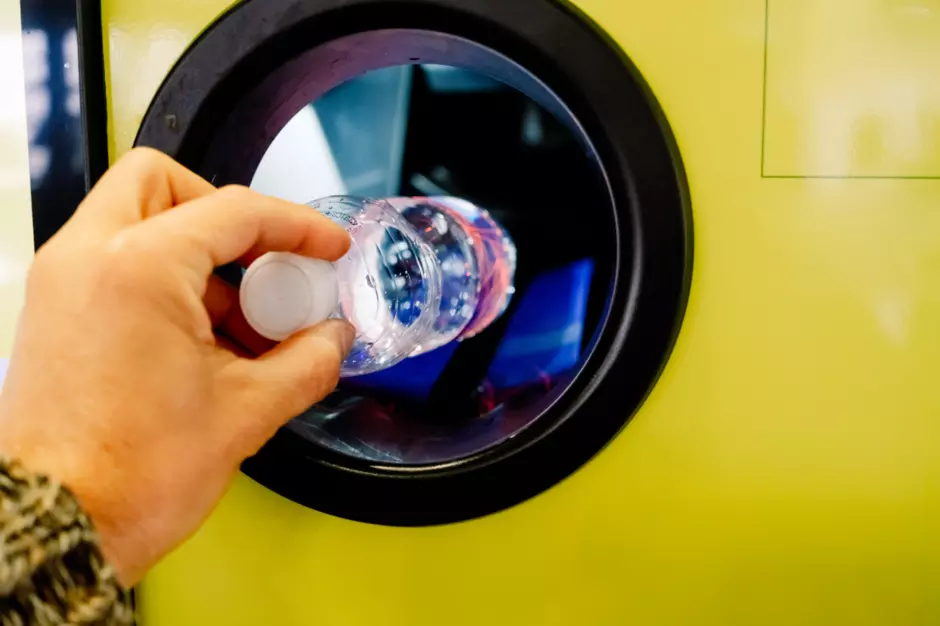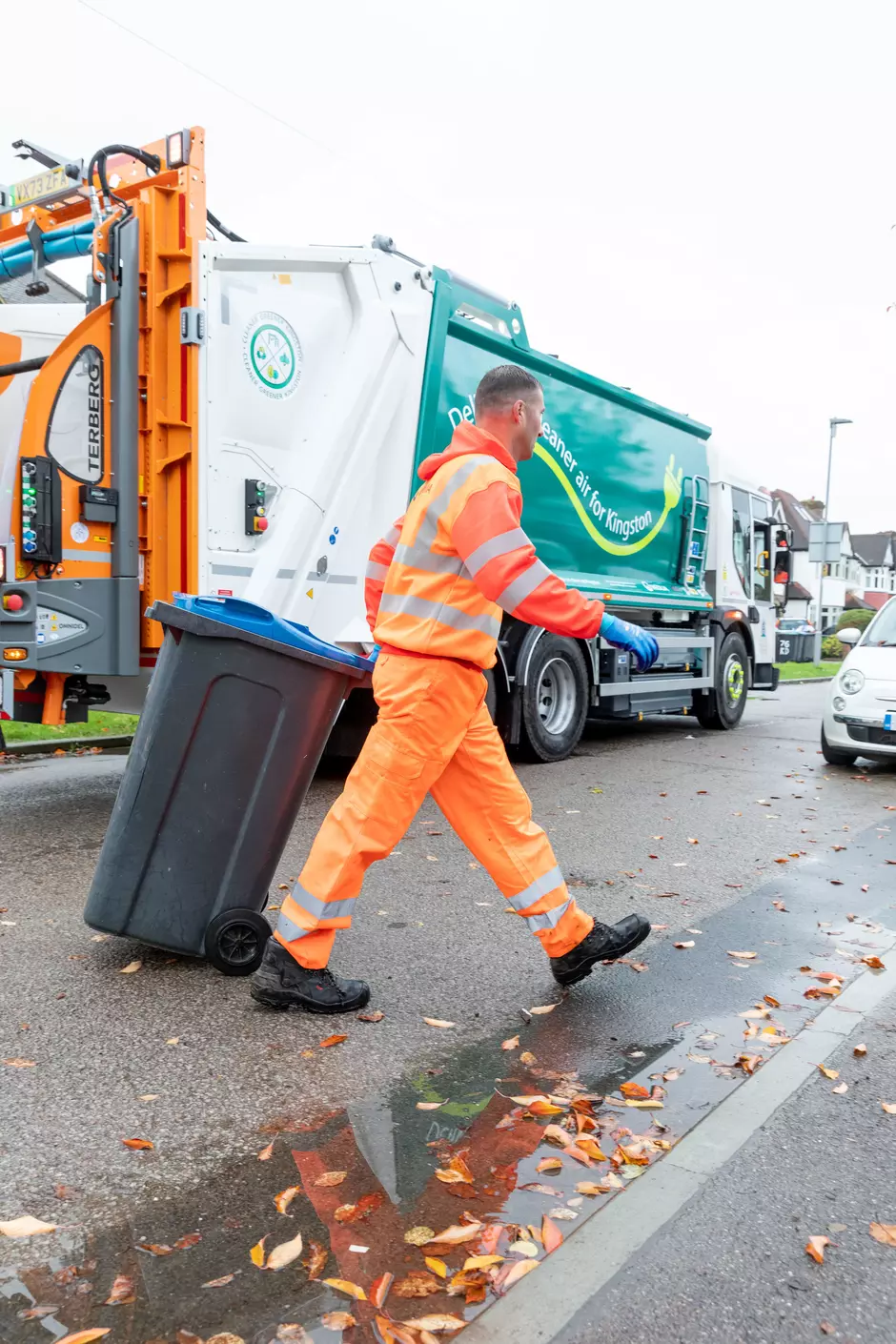The UK Government intends to deliver a Deposit Return Scheme (DRS) in England, Northern Ireland, and Scotland in October 2027.
In January 2025, the legislation was passed, but what does that mean, and how might it affect you and the wider waste management industry?
What is a Deposit Return Scheme?
A deposit return scheme (DRS) encourages recycling by charging a small refundable deposit on eligible drinks bottles and cans. The deposit is redeemed by the person returning the container to a participating outlet, which may not always be the person who bought it.
The redeemable deposit is added to relevant containers defined as single-use closed bottles and cans made from polyethylene terephthalate (PET) plastic, steel, or aluminium which contain between 150 millilitres and 3 litres of drink.
The containers can be returned at designated outlets, the exact location of which will be determined during the establishment of the Scheme, but is likely to include supermarkets and other retailers. The process will involve the use of specially designed reverse vending machines that automatically handle the return, as well as a manual over the counter scan and return option.

DRS Timeline
January 2025
DRS regulations for Northern Ireland and England in force.
February 2025
Applications for the Deposit Management Organisations (DMOs) positions closed in early February.
April 2025
Decision expected on who will be appointed the Deposit Management Organisation from the Government.
Scotland to lay their legislation.
October 2027
The Deposit Return Scheme commences.
Find out more about the Deposit Management Organisations
The Deposit Management Organisations (DMOs) will be a not-for-profit organisation that will be responsible for managing the delivery, implementation, and operation of the DRS. There will be two DMOs (which could be the same company), one across England and Northern Ireland and another for Scotland.
The process to appoint the DMOs is well underway, and applications from organisations wishing to apply closed in early February, with a decision expected from the Government by April 2025. The DMOs will be vital to the success of DRS as they will be responsible for some fundamental aspects of the scheme, including:
- Setting the deposit amount, the producer registration fees, and payments to return point hosts.
- Providing detailed guidance to help businesses in the drinks supply chain prepare for the DRS.
- Informing consumers about the scheme and handling queries.
- Responsible for meeting the scheme’s collection targets set out in the legislation.
- Arrange collection, sorting, and recycling of in-scope materials.
- Make collected material available to producers for purchase.
The DMOs will need to deliver the DRS by October 2027. DEFRA will assess their plans and approach to achieving this as part of the appointment process. As a back-stop, should the 2027 date not be achieved, the in-scope DRS containers will become subject to the Packaging Extended Producer Responsibility scheme.
The biggest questions are yet to be answered. Although the legislation sets out the framework for DRS and requires the DMOs to establish all of the systems and processes, it does not prescribe all the details on how this should be done.
An estimated 6.5 billion single-use drink bottles and cans go to waste, rather than being recycled, every year. That's over 17 million each day.
The Government has indicated that DRS will be a key tool in:
- Increasing the country's recycling rate.
- Ensuring these valuable resources don't go to waste.
- Supporting green jobs and investments.
- Reducing litter, thereby protecting wildlife.
Deposit return schemes are not new, they have been successfully implemented in Europe and worldwide, for example, in Germany and, most recently, the Republic of Ireland. The concept has been around for decades, with localised examples being used on smaller scales by drinks companies or event organisers. What is new is a scheme that will span England, Northern Ireland, and Scotland, bringing DRS into law.
Recent DRS Developments
In 2024, the Government confirmed its commitment to delivering DRS through the laying of legislation that was subsequently reviewed and debated in parliament before being formally approved on 21st January 2025.
The approved legislation covers England and Northern Ireland.
Scotland has also committed to delivering by October 2027, having previously dropped plans to introduce a DRS in 2024. They already have the legislation needed, which is in the process of being updated. Scotland initially wanted to include glass in DRS, but to move forward, they have agreed that glass does not need to be included from day one.
In November 2024, the Welsh Government announced that it would create its own DRS instead of participating in the UK-wide one, largely based on the inclusion of glass. Unlike the remainder of the UK, the Welsh Scheme will include glass, as they consider that DRS should act as the gateway to reuse, meaning glass must be included. The Welsh Government has committed to consulting on the details of their proposed scheme in Summer 2025.
Our Commercial & Retail Customers
Our commercial and retail customers will be significantly impacted by the introduction of DRS. Retailers will need to manage the need to offer return services, either voluntarily, over the counter, or via a new reverse vending machine. The administration of the scheme, management of returned items, and impact on valuable retail space that may be given over to reverse vending machines will require careful consideration.
Local Authorities
Local authorities will see a change to the composition of their residents’ waste as members of the public who choose to participate in the DRS will redirect some of the most valuable materials away from their kerbside collections.
Producers of Drinks Containers
Producers will have greater access to materials following their collection and processing under the DRS. The exact arrangements for this will need to be defined, but an increase in the circularity of material would be welcome.
Waste Management Industry
For the waste management industry, it will represent an opportunity for us to support the design and delivery of new services to support our current and future customers. It will also fundamentally impact the waste collected, including the material ownership and drivers to invest in recycling infrastructure.
How DRS will impact different sectors and customers may vary depending on where they sit in the value chain and whether they are directly or indirectly impacted by the legislation.
Introducing a DRS will have a big impact on customers, businesses, local authorities, and waste management companies.
How DRS will be implemented will largely depend on the approach taken by the DMOs, but there are some things that we do know based on the legislation or other schemes.
Delivery of the DRS will require several different roles and responsibilities across the value chain, and we anticipate that this will involve a number of different contracts and agreements being put in place to deliver specific services. These are likely to include:
- Provision of returns infrastructure, including manual over-the-counter services and automated reverse vending machines.
- Collection and transportation of the materials that are returned.
- Sorting, counting, and processing of the containers to ensure the payment process operates smoothly.
- Recycling of the materials - the legislation obligates the DMO to ensure the materials are recycled.
Find out more about funding for the DRS
Some aspects will need to be ironed out once the DMOs are appointed, but there are some core aspects to funding the DRS that we already know:
- Those who are providing a service will be paid a fee, whether that is a handling fee for retailers to cover the cost of providing a return point or costs associated with logistics and collections - these will need to be assessed and set by the DMOs.
- The DMOs themselves, and the scheme overall, is funded in three main ways:
- Producer fees will be set by the DMOs and paid by those producing in-scope containers.
- Unredeemed deposits, where a deposit is paid by a consumer but the item is not returned, will be used to fund the scheme.
- Revenue from the sale of the material collected to re-processors and recyclers.
What do we need to see next?
- Veolia has extensive experience in DRS and the associated tasks from around the world and is excellently placed to support the Government, our customers, and the new DMOs. The waste management sector must be consulted and engaged at the earliest opportunity. Engaging with our expertise will help to ensure the plans that are put in place are complementary to the existing waste management infrastructure to deliver successfully.
- Like most policies, the key to success is having clear and deliverable plans as early as possible - all those involved will need time to plan and prepare - which can’t be done without clear guidance.
- It is pleasing that we have had positive engagement to date with DEFRA, our customers, and the prospective DMOs. To be successful, the Government and the DMOs must acknowledge and understand the unique starting point of the UK and its current waste management provisions.
- Interoperability will be key to success. Having multiple schemes across England, Northern Ireland, Scotland, and Wales before considering the existing scheme in the Republic of Ireland will mean planning, implementation, and delivery could be made increasingly challenging and complex. The DRS must be designed and delivered in a way that supports businesses that will need to deploy solutions across all nations. While making it easy for customers to utilise and do the right things wherever they are.
- DRS must drive the right outcomes, have a positive impact on all those engaged, and unlock investment in recycling infrastructure.



